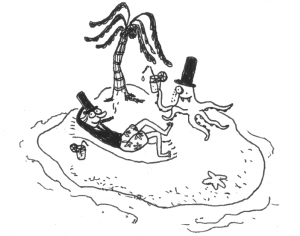Wired has a great article (warning: long but worth your time) on last year’s cyberattack. It started as part of the Russian cyberwar against Ukraine. Almost immediately, companies around the world became collateral damage. Andy Greenberg’s Wired story highlights the impact on shipping giant Maersk.
Just to illustrate the vulnerability of IT systems:
Maersk’s 150 or so domain controllers were programmed to sync their data with one another, so that, in theory, any of them could function as a backup for all the others. But that decentralized backup strategy hadn’t accounted for one scenario: where every domain controller is wiped simultaneously. “If we can’t recover our domain controllers,” a Maersk IT staffer remembers thinking, “we can’t recover anything.”
The total damage caused by the attack has been estimated at $10 billion…

